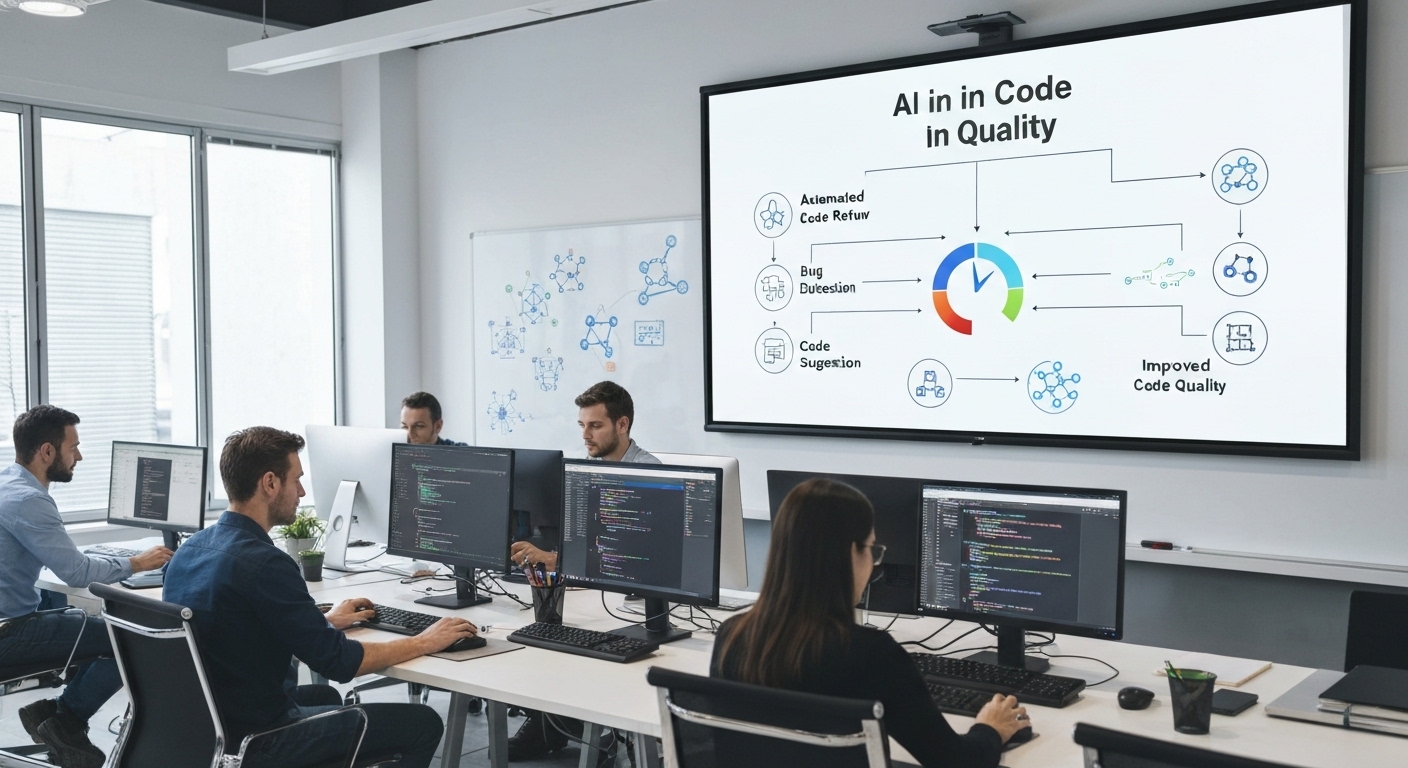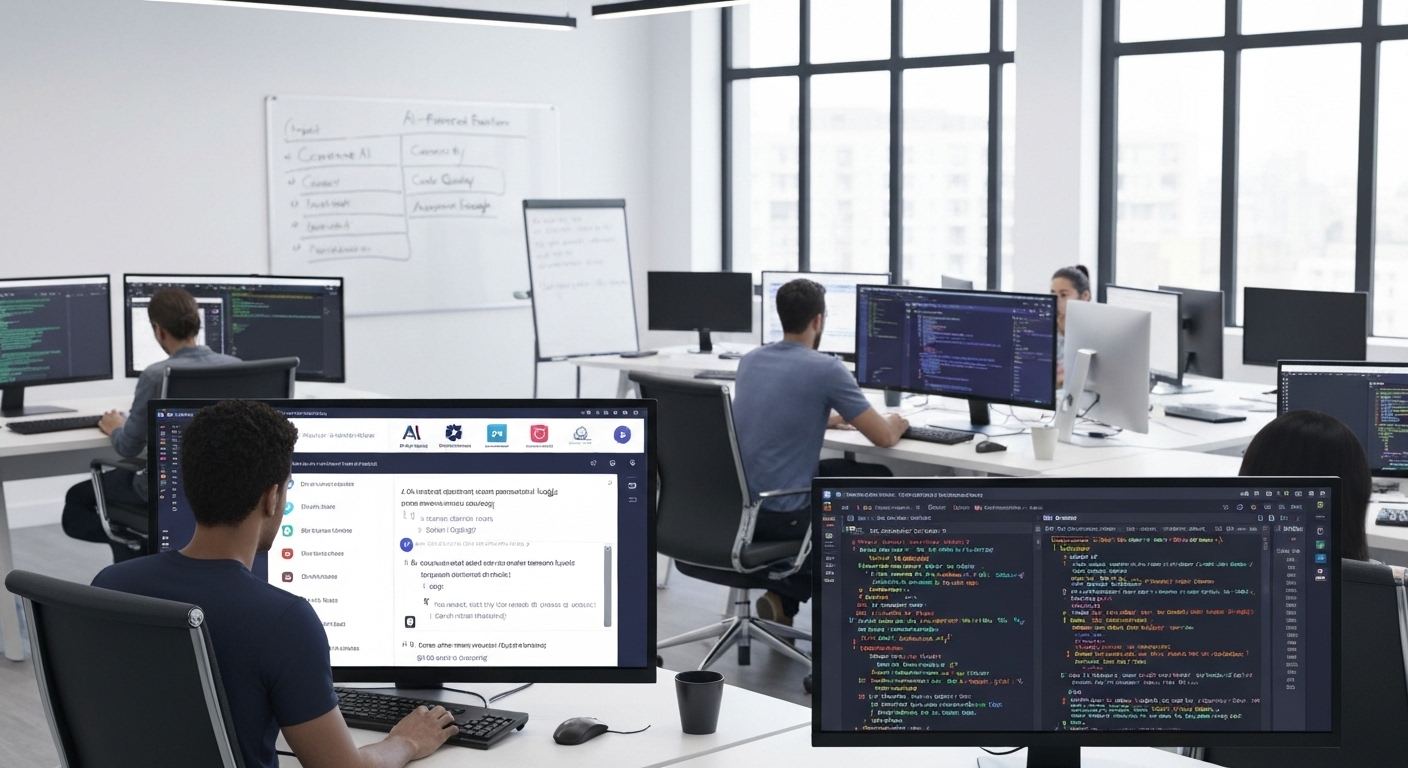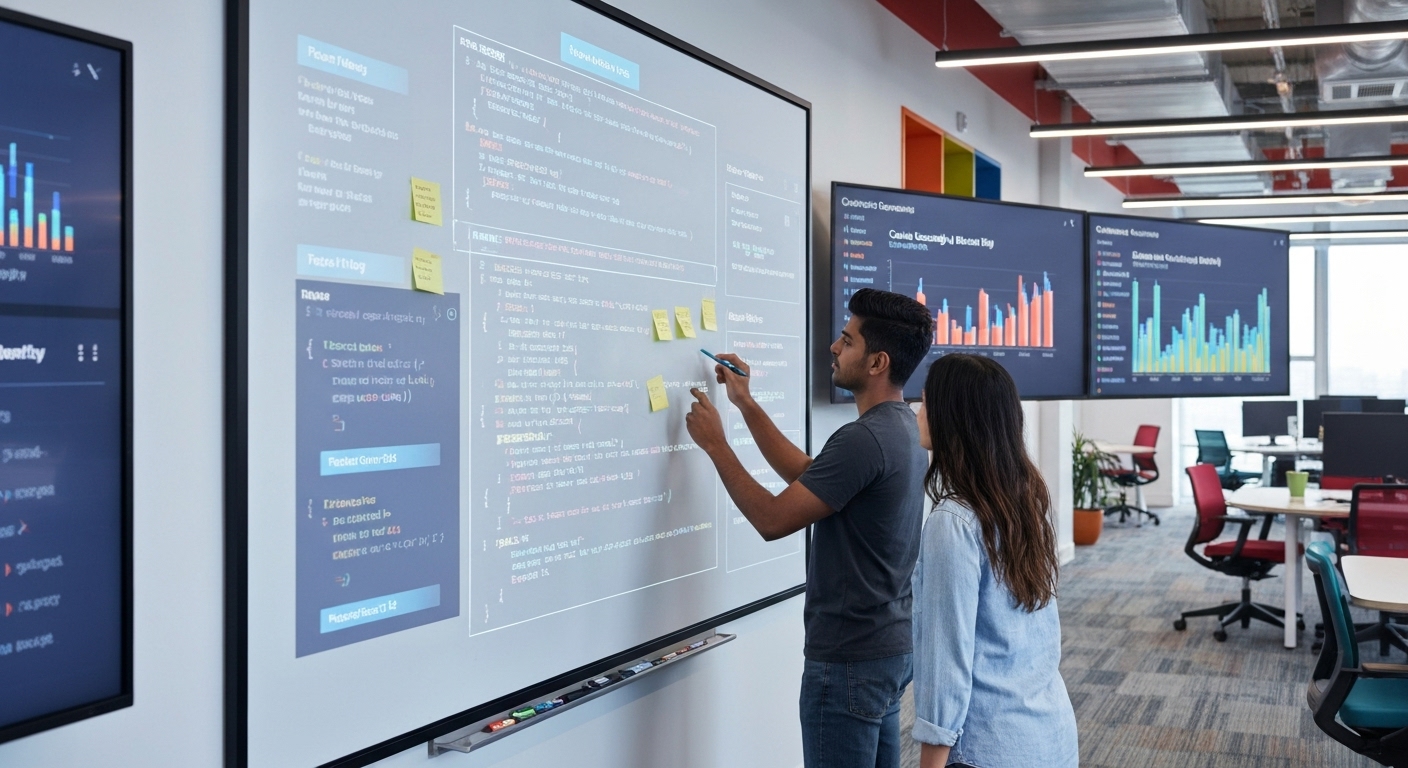AI for Improving Code Quality : A Comprehensive Guide
AI for improving code quality is rapidly transforming software development. By automating tasks like code review, bug detection, and optimization, AI helps developers create more robust, efficient, and maintainable software.

The Rise of AI in Code Quality Assurance
Traditional methods of code quality assurance, such as manual code reviews and testing, can be time-consuming and prone to human error. AI-powered tools offer a more efficient and accurate alternative. These tools leverage machine learning algorithms to analyze code, identify potential issues, and suggest improvements, significantly enhancing the software development lifecycle.

Benefits of Using AI for Code Quality
- Improved Accuracy: AI algorithms can detect subtle errors and vulnerabilities that humans might miss.
- Increased Efficiency: Automating code reviews and testing frees up developers to focus on more creative and strategic tasks.
- Reduced Costs: By identifying and fixing bugs early in the development process, AI can help reduce the cost of rework and maintenance.
- Enhanced Collaboration: AI-powered tools can provide objective feedback on code quality, promoting more constructive collaboration among developers.
- Faster Development Cycles: Streamlining the code review and testing process accelerates development cycles and time to market.
AI-Powered Bug Detection
AI excels at detecting bugs and vulnerabilities in code. Using techniques like static and dynamic analysis, AI tools can identify potential issues before they make it into production. Static analysis involves analyzing code without executing it, while dynamic analysis involves analyzing code while it’s running.

Automated Code Analysis with AI
Automated code analysis is a crucial aspect of improving code quality. AI can perform various types of analysis, including:
- Static Analysis: Identifies potential bugs, security vulnerabilities, and code style violations.
- Dynamic Analysis: Analyzes code behavior during runtime to detect performance bottlenecks and runtime errors.
- Complexity Analysis: Measures the complexity of code to identify areas that may be difficult to understand and maintain.
These analyses help ensure that code adheres to coding standards, is secure, and performs optimally.
Tools for AI Code Review
Several tools leverage AI for automated code review. These tools integrate with existing development workflows and provide developers with real-time feedback on code quality. Examples include DeepSource, CodeClimate, and SonarQube (with its AI-powered features).

Machine Learning for Code Optimization
Machine learning algorithms can be used to optimize code for performance and efficiency. By analyzing code patterns and execution data, AI can identify areas where code can be improved. This includes optimizing algorithms, reducing memory usage, and improving code structure.
One practical example is AI optimizing database queries. AI can learn from past query executions and system performance data to suggest optimal query plans, leading to faster response times and reduced database load.
Improving Code Maintainability with AI
AI can help improve code maintainability by identifying code smells, suggesting refactoring opportunities, and automatically generating documentation. This makes it easier for developers to understand and modify code, reducing the risk of introducing new bugs.

AI and Code Security
Security is a critical aspect of code quality. AI can play a significant role in identifying and mitigating security vulnerabilities. AI-powered security tools can automatically scan code for common vulnerabilities, such as SQL injection, cross-site scripting (XSS), and buffer overflows.
Furthermore, AI can learn from past security incidents to identify emerging threats and proactively protect against them. For example, machine learning models can be trained to detect anomalous code behavior that may indicate a security breach.
AI-Powered Testing Tools
Testing is an essential part of software development. AI-powered testing tools can automate the generation of test cases, prioritize tests based on risk, and analyze test results to identify areas of code that require further attention. This improves the efficiency and effectiveness of testing, leading to higher-quality software.
AI can also assist in creating more comprehensive test suites, covering a wider range of scenarios and edge cases. This helps ensure that software is thoroughly tested and that potential bugs are identified before release.
Implementing AI in Your Development Workflow
To effectively leverage AI for improving code quality, it’s important to integrate AI-powered tools into your development workflow. This includes setting up automated code review processes, using AI-powered testing tools, and training developers on how to use these tools effectively.
Challenges and Considerations
While AI offers numerous benefits, it’s important to be aware of the challenges and considerations associated with its adoption. These include:
- Data Requirements: AI algorithms require large amounts of data to train effectively.
- Explainability: It can be difficult to understand how AI algorithms arrive at their decisions, which can make it challenging to trust their recommendations.
- Bias: AI algorithms can be biased if the data they are trained on is biased.
- Integration: Integrating AI-powered tools into existing development workflows can be complex.
Addressing these challenges requires careful planning, data governance, and ongoing monitoring.
The Future of AI in Code Quality
The future of AI in code quality is bright. As AI technology continues to evolve, we can expect to see even more sophisticated tools and techniques that further automate and improve the software development process. This includes advancements in areas such as:
- Generative AI: AI that can automatically generate code based on specifications.
- Self-Healing Code: AI that can automatically detect and fix bugs in code.
- AI-Driven Refactoring: AI that can automatically refactor code to improve its structure and maintainability.
These advancements will further transform the software development landscape, enabling developers to create higher-quality software more efficiently.
For further reading on code quality best practices, you can refer to NIST.
For cloud solutions and resources to support your AI-driven code improvements, check out flashs.cloud.
Conclusion
AI for improving code quality is a game-changer for software development. By automating code reviews, bug detection, and optimization, AI helps developers create more robust, efficient, and maintainable software. While there are challenges to overcome, the benefits of AI are clear. As AI technology continues to advance, we can expect to see even greater improvements in code quality and software development productivity.

HOTLINE
+84372 005 899


